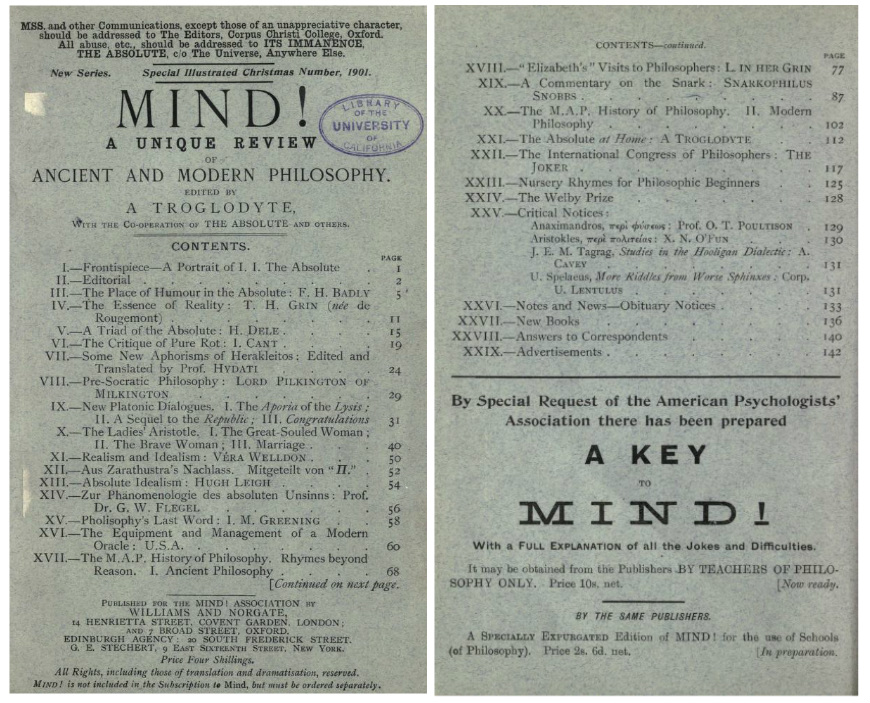In CoPhi today it's a bunch of churchmen invoking supernatural nonhuman authority. Pragmatic humanists don't share their enthusiasm for Divine incursion and spiritual/apologetic coercion, but pragmatic pluralists (who turn out to be the same pragmatists, tilting their hats just a bit aslant) are bound to "respect" whatever value for life the likes of Augustine, Boethius, Anselm, and Aquinas and their devotees credibly attest from that remote and august quarter. "Value for life" is deliberately vague, but it definitely excludes any over-narrow construction cast in strictly self-serving short-sighted terms. Value must be for life as a whole and in the long run. The question for a good pragmatist is never What's in it (just) for me?
That's the view we're examining in A&P, as we skip ahead in Pragmatism to the final pair of lectures. The penultimate Pragmatism and Humanism defends WJ's friend FCSS's (Ferdinand Canning Scott Schiller of Oxford) "butt-end foremost statement of the humanist position," his avowal that the world possesses enough plasticity to actually accommodate some and other of our various moral and existential desires. (Schiller was a parodist and later eugenicist whose acerbic sense of humor sometimes annoyed and perplexed James, but whose bout with illness prompted him to urge the life-advice I've always tried to honor: "Keep your health, your splendid health; it's worth all the truths in the firmament.)
But, but, butt foremost: the pragmatic adventurer remains committed to the process of mediation between tough-and-tender thinking and living, and to accommodating even the Authoritarian Rationalist (Absolutist) type of mind when its perspective delivers sufficient value to those whose temperaments find it congenial.
Finally, Pragmatism and Religion ends WJ's lectures just where Richard Rorty's begin in Pragmatism as Anti-Authoritarianism (HUP 2021, posthumous).
"Between the two extremes of crude naturalism on the one hand and transcendental absolutism on the other," concludes WJ, "you may find that what I take the liberty of calling the pragmatistic or melioristic type of theism is exactly what you require."
Rorty's lecture entitled Pragmatism and Religion commences with a declaration that pragmatism is "a protest against the idea that human beings must humble themselves before something non-human, whether the Will of God or the Intrinsic Nature of Reality."
Can those of us who think of ourselves as "pragmatistic or melioristic" (but decidedly not theistic) respect WJ's and RR's respective varieties of humanism alike? Can Jamesians and Rortians all just get along? Can they meet in Rorty's bazaar, if not in James's corridor?
Still just asking questions here.

No comments:
Post a Comment